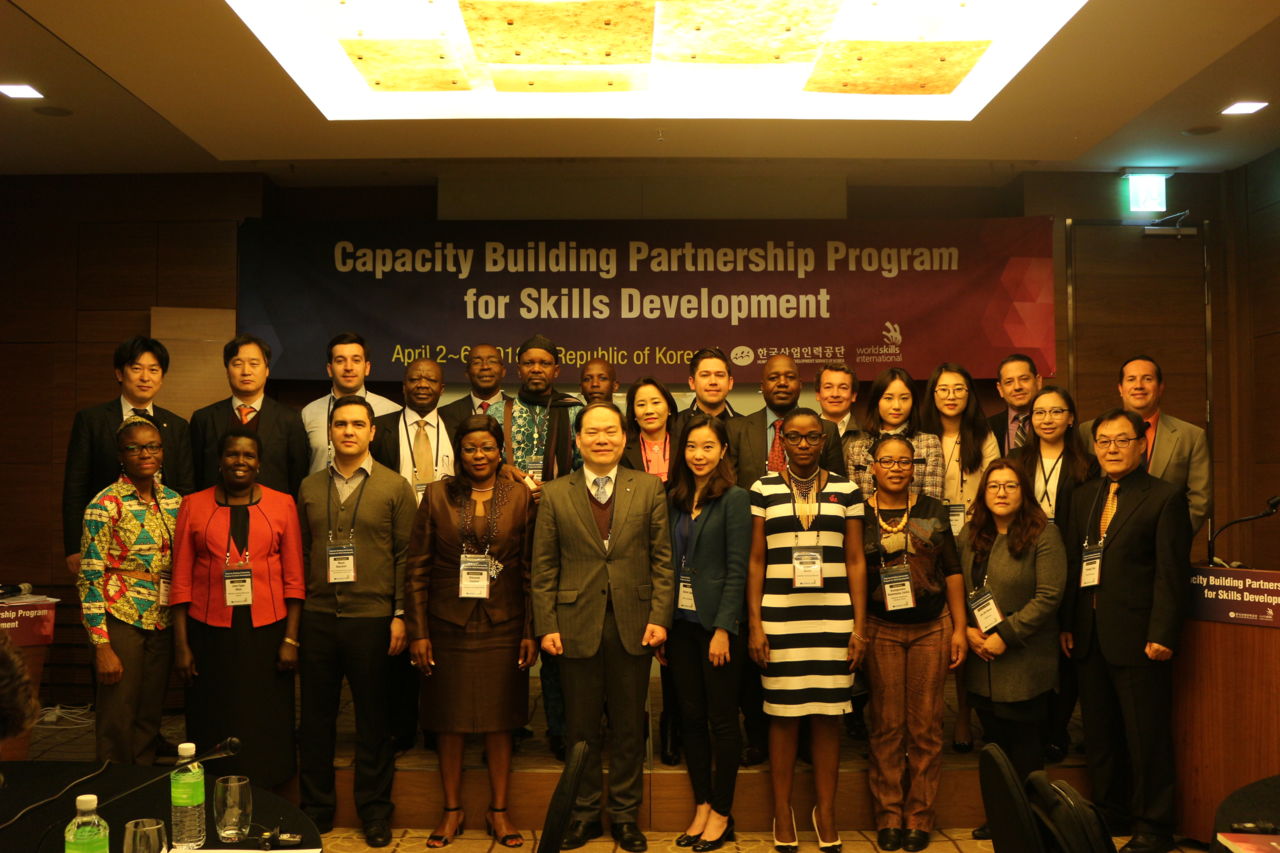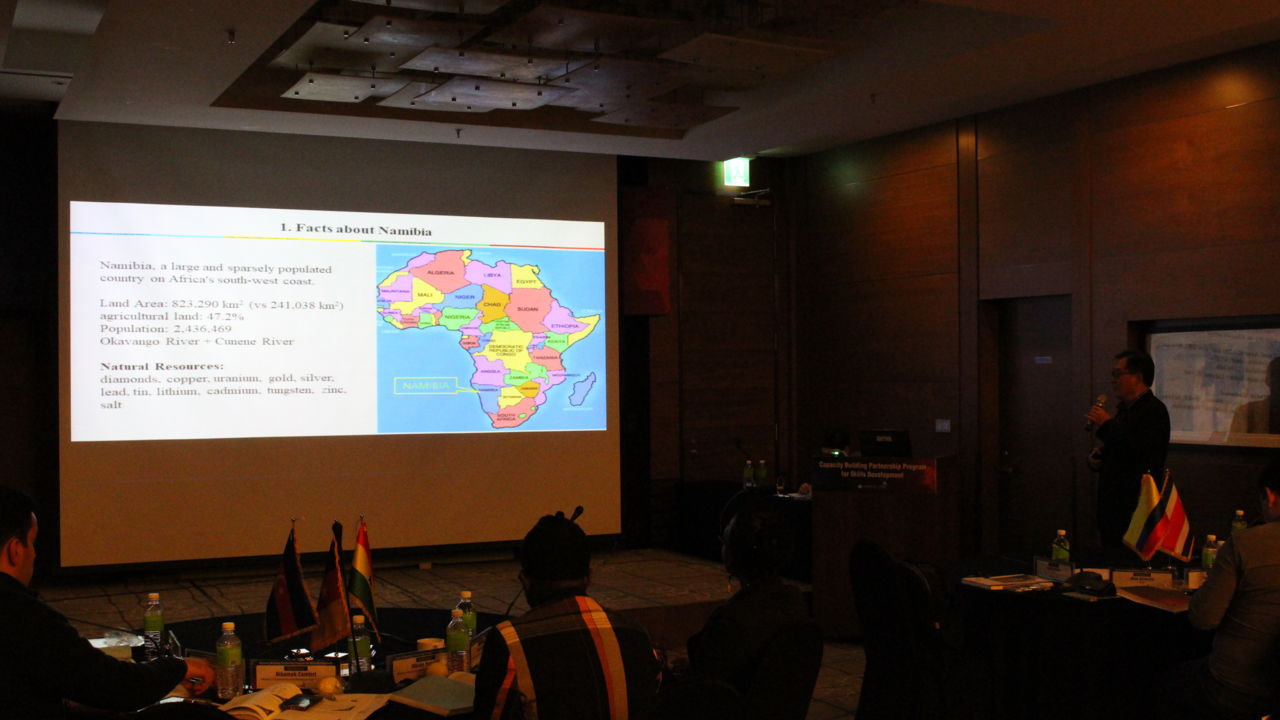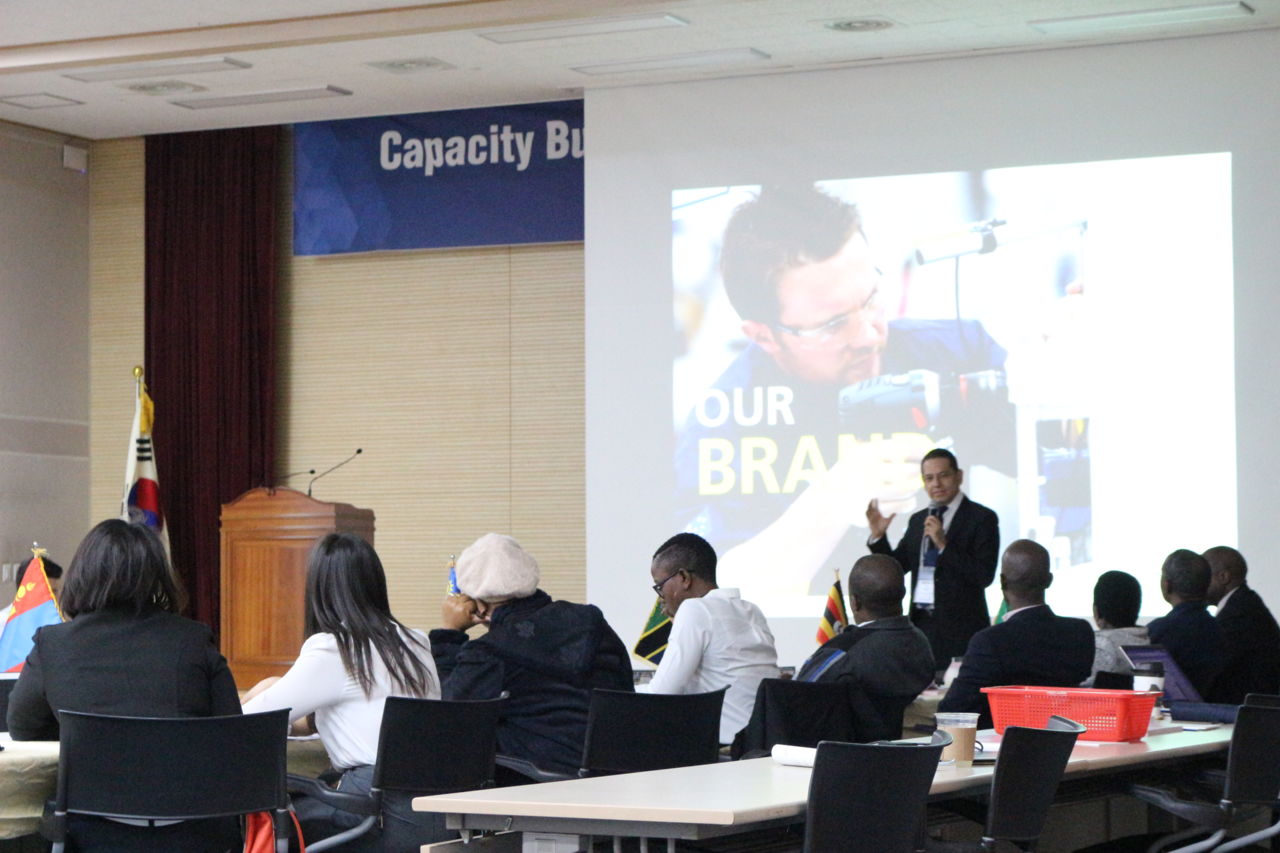11 May 2018
Korea strengthen skills training in ten developing countries in Africa, Latin America and Asia

Skills are for sharing.
That’s the message from Korea which has pledged to strengthen skills training in ten developing countries in Africa, Latin America, and Asia.
In April, Human Resources Development Service of Korea, led talks at the Global Institute for Transforming Skills (GIFTS) .
The goal was to create a Capacity Building Partnership for Skills Development. This will see Korea taking part in new skills initiatives in Zambia, Namibia, Mongolia, Costa Rica, and Colombia where there is already a WorldSkills presence, and in Uganda, Ghana, Cameroon, Tanzania, and Azerbaijan which are not WorldSkills Members.

The WorldSkills Capacity Building Centre, WorldSkills International, and GIFTS will work together on projects that focus on skills development including skills training, capacity building, competitions management, and mentorship.
Following the MOU signed earlier this year by HRD Korea’s President Dong Man Kim, WorldSkills President Simon Bartley, and WorldSkills International CEO David Hoey the teams will now get to work in building skills around the world.
According to Mr Dong Man Kim, Africa is one of the initiative’s major areas to partner with.
“We hope to contribute to the development of skills and economies there through international cooperation. Our experience to help design and plan a skills competition system on the national level is a valuable asset which we want WorldSkills members and non-member countries to benefit from.”
The news was warmly welcomed by David Chakonta of Zambia who attended the Korean workshop, ”I am very optimistic. We are studying Korea’s Skills Act of 1966 for its possible adaption in Zambia and we believe that a national skills competition has the potential to bridge the gap between employers expectations, and the attributes TVET educated young people bring as they enter the labour market.”
Some 84% of Zambian workers are currently in informal employment without access to training. Less than 20% have any formal skills training, while a tenth of young Zambians are unemployed.
To transform Zambia’s workforce the Koreans will partner on establishing a three-tier national skills competition which will incorporate a career development programme as well as a focus on regional development. The two countries will also establish a bilateral technical cooperation project and develop research into achieving skills excellence.
Mr Chakonta commented that Zambia has its own Vision 2030 document which sets his country the target of attaining middle-income nation status by that date. “The cultivation of a skills excellence capability base to support this ambition will be one of our national development targets.”

This Korean plan fits neatly into WorldSkills “One Country, One African Friend” initiative to promote skills development on the continent. Already some ten WorldSkills Members are starting to engage with African partners. For example, France is linking up with Senegal and Morocco, and Finland will be active in Zambia.
The WorldSkills Capacity Building Centre will develop and expand these partnerships. “Other countries such as Brazil, Chinese Taipei, Japan, and China have also been doing outstanding work in Africa,” said the WorldSkills President, Simon Bartley. “We look forward to seeing more initiatives from experienced WorldSkills Members to from similar strategic partnerships.”
In The Americas Colombia and Costa Rica will also benefit from this WorldSkills support. The Korean delegation will arrive in Colombia in late May and already Colombian skills experts are excited about the future impact.
“I think Korea’s model has some very important points that can help us to strengthen skills in Colombia,” said Hellman Yesid Rusinque Gambia of the National Vocational Training Agency (SENA). “We can’t ‘cut and paste’ the Korean model but I’m pretty sure we can adapt it to conditions in Colombia to have very good results. We can learn from each other.”

Colombia has an unemployment rate of 10% and, according to Mr Gambia, its young people are not as skilled as Colombian companies need them to be if they are to compete globally,
“We want to raise the quality level of our training so we can get international standards that can ease the path for a young Colombians to get employment. We would also like to encourage entrepreneurship and innovation so that new Colombian companies can be set up and start to help our economy”.
Mr Gambia’s dream is to see Colombia become one of WorldSkills top ten Member countries in terms of international competitiveness and gold medal success.
If anyone can help Colombia and Zambia achieve their objectives Korea can – for years it has been mentoring and working with developing countries. In 2014 it delivered the first national skills competition in Namibia, and encouraged Competitors from Namibia, Zambia, and South Africa to attend the Korean national skills competition.
As more and more WorldSkills Members take up the challenge of forming similar strategic partnerships around the world it’s clear that skills and knowledge sharing is a winning formula.